Hardcore hackers
Developing a computer app in just 40 hours – that was the challenge facing the 350 attendees of the HackZurich programming marathon last weekend. The winner produced an app which enables users to explore remote places using their smartphone.
Technopark Zurich, Friday evening, 6.00 p.m.: Rasmus Rothe takes to the stage, with 461 computer fans and IT enthusiasts waiting to hear what he has to say. Rothe heads up the organisational team behind external page HackZurich, which is Switzerland’s largest programming marathon to date.
Rasmus Rothe knows how to engage his audience. “Who of you is not from Switzerland?” he asks them. Dozens of people raise their hands. Over a hundred of the participants have travelled to Zurich from abroad, with many of them hailing from Germany and others from central and eastern Europe or America: “This is probably the most well-organised hackathon,” says Chris Traganos, a web developer and external page blogger from the US, “you do a good job of things here in Switzerland.”
A quick and creative approach to finding solutions
Rasmus Rothe is a doctoral student from the Computer Vision Laboratory, part of the Department of Information Technology and Electrical Engineering (D-ITET) at ETH Zurich, and he is full of enthusiasm. HackZurich is the third hackathon held by students from ETH and the University of Zurich – and the first to be organised with a larger, more international scope. The two previous programming marathons involved just 40 and 80 people respectively. This year, however, 352 people have taken part, a quarter of them women. Most of the attendees are students and the youngest is 17 years old.
Rasmus Rothe has a playful way of infecting the gathering of computer fans with this own enthusiasm. With a keen sense of humour, he projects a Twitter message from the internet onto the wall: “My mum just asked if external page #HackZurich is legal?”
In actual fact, HackZurich has nothing to do with illegally invading other people’s computers. The hackathon is far more about encouraging attendees to develop new, fully functional apps within the space of just 40 hours. The “hackers” need to be quick, creative and able to work in a team. The teams, which each contain two to four people, have to transform an idea into a real-life app based on codes written during the competition – they are not allowed to use codes written in advance.

From coding to starting a business
A hackathon is more than just a competition – it is an experience: “We are bringing the quintessential ‘hackathon spirit’ from the US to Switzerland,” says Rasmus Rothe. No-one embodies this spirit more than Josh Miller, who gave a speech to stir up the mood amongst the HackZurich attendees. He took part in a hackathon himself a few years ago, despite having no programming knowledge or skills. He then went on to launch external page Branch Media , a startup which develops solutions for holding online conversations. The 24-year-old sold the company to Facebook for USD 15 million in 2014 and now works for the social media giant as a product manager. “Be mission-driven” is the advice he offered to the hackers in Zurich.
Startups are another important element of the hackathon: “For us, the ultimate success is when a hackathon team evolves into a startup business,” says Daniel Meile, President of the external page ETH Entrepreneur Club. “Ultimately, the teams should develop products that make a difference in the world.” The ETH Entrepreneur Club is a student-run initiative which brings together students who are keen to set up their own business. The ETH entrepreneurs organise HackZurich in cooperation with their counterparts at the University of Zurich – the UZH Startuppers – as well as other events such as external page Startup Speed Dating, which is being held at ETH Zurich on 5 November.
43 sponsors and 2.2 tonnes of food
Friday evening, 8.00 p.m.: as a platform which enables students to solve software problems quickly and in an unconventional way, the hackathon has attracted sponsorship from 43 businesses. The main sponsors organise workshops to help attendees who are still unsure about how to tackle the challenge to come up with an idea and implement it using the technology required. For example, they are encouraged to design apps which generate moving images, forecast storms or control web-based model racing cars.
The attendees are given 45 seconds to present their ideas and form teams, which then set themselves up at the various tables available and get their laptops and charging devices ready.
The “hacking” gets underway at 10.30 a.m. on the Friday and by 6.00 a.m. on Saturday morning the teams have submitted 101 projects. By the time the final deadline comes round on the Sunday morning, the teams have written a total of some 245,000 lines of code.
The attendees’ main aim is to make it through to the end, which is why 2.2 tonnes of food and 3,400 litres of drinks are provided – including boxes of pizzas and tubs of muesli. Activities such as table football, table tennis or console games are also available to give the participants a chance to take a break from programming. “It’s a fantastic weekend,” says one, who has even brought a sleeping mat with him.
The winning app: “just use it”
Sunday afternoon, 2.00 p.m.: the top 25 ideas move on to the final. “Are you feeling okay?” Rasmus Rothe asks the attendees. The resounding “yes” in response indicates just how excited they all are. The finalists each have two minutes to win over the panel of judges. Their ideas cover all kinds of different areas of application, including apps designed to help people with shopping and cooking and apps for making contact with like-minded people.
At 4.00 p.m. it is time for the winners to be announced: “And the winner is…Team Immersive!” external page Immersive is a team of four students: Johannes Schickling, Emanuel Jöbstl, Matthias Standfest and Elisaweta Masserova. Matthias Standfest is a research asistant from the Chair of Information Architecture, part of the Department of Architecture (D-ARCH).
Their app enables users to explore even the most far-flung places using a smartphone camera – if they are looking for somewhere to rent in a foreign city, for example. As well as producing the app, the team created a website featuring external page sample photos during the two-day contest.
Elisaweta Masserova says she feels totally overwhelmed by the team’s success. The victory also came as a surprise to her teammate Emanuel Jöbstli, who is lost for words after 40 hours of programming: “But our app is online,” he says, “you can just use it.”
The hackathon in pictures
-
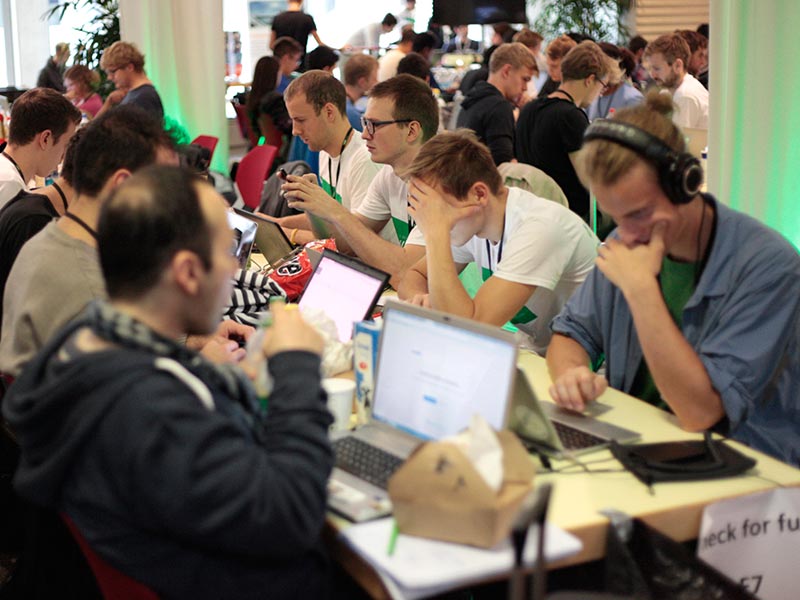
The hackathon at Technopark Zurich. (Photo: Manuel Maisch) -
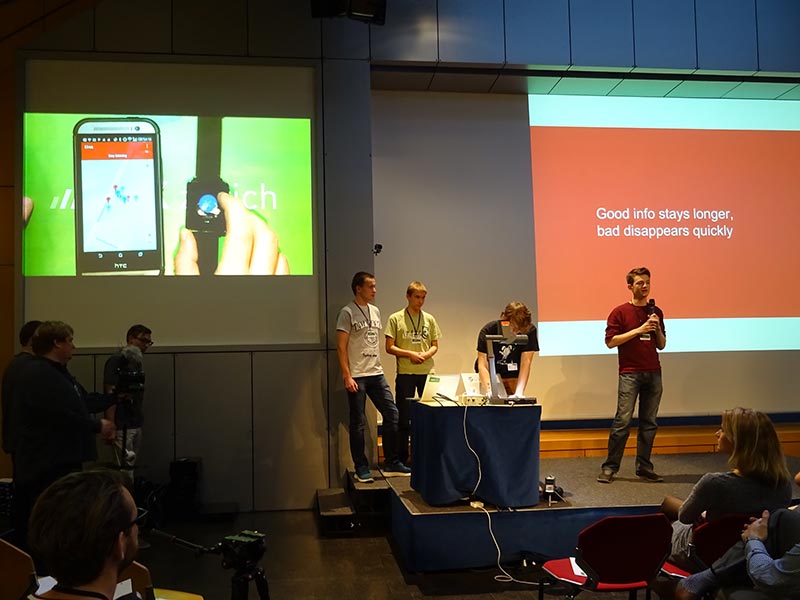
A presentation in the final. (Photo: Florian Meyer) -
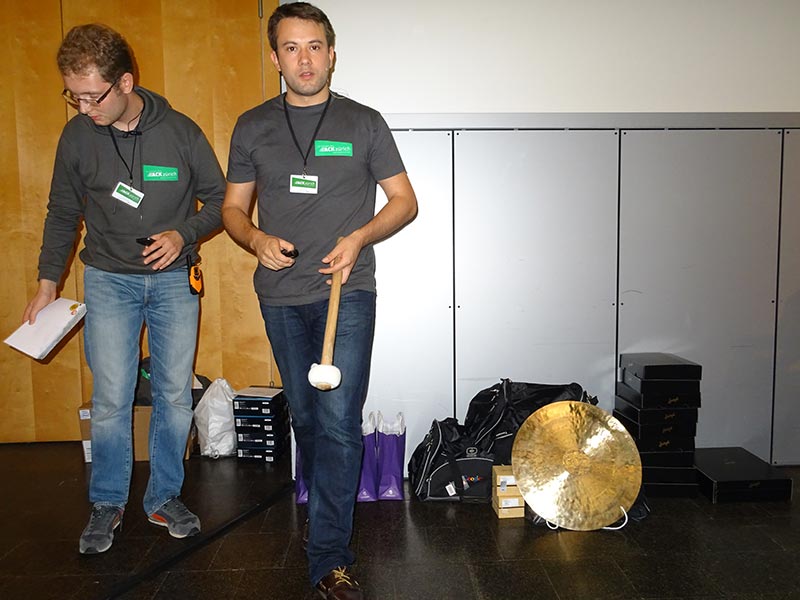
Rasmus Rothe is the event director. (Photo: Florian Meyer) -
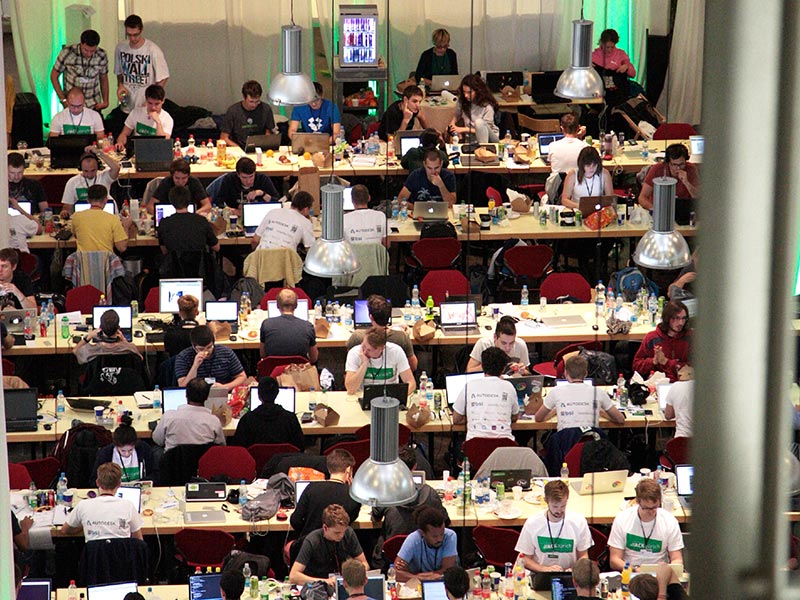
Coding for 40 hours. (Photo: Manuel Maisch) -
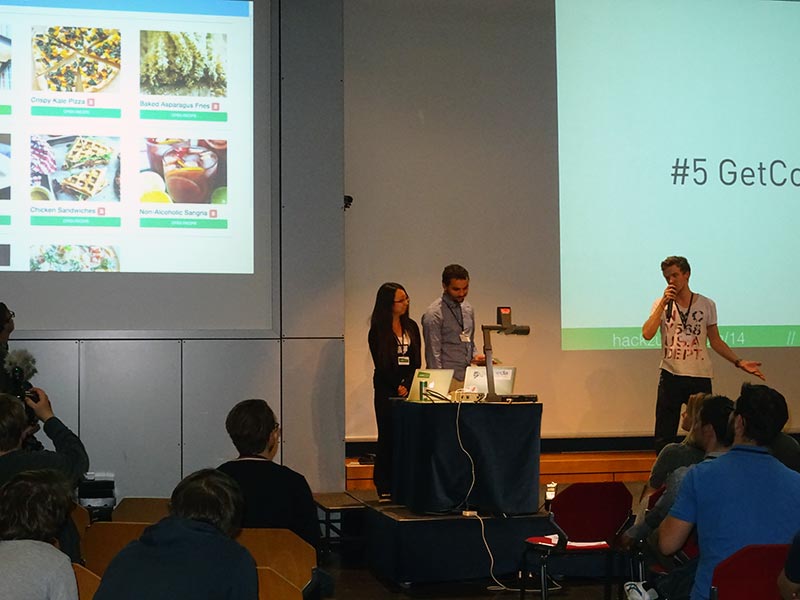
An app for cooking. (Photo: Florian Meyer) -
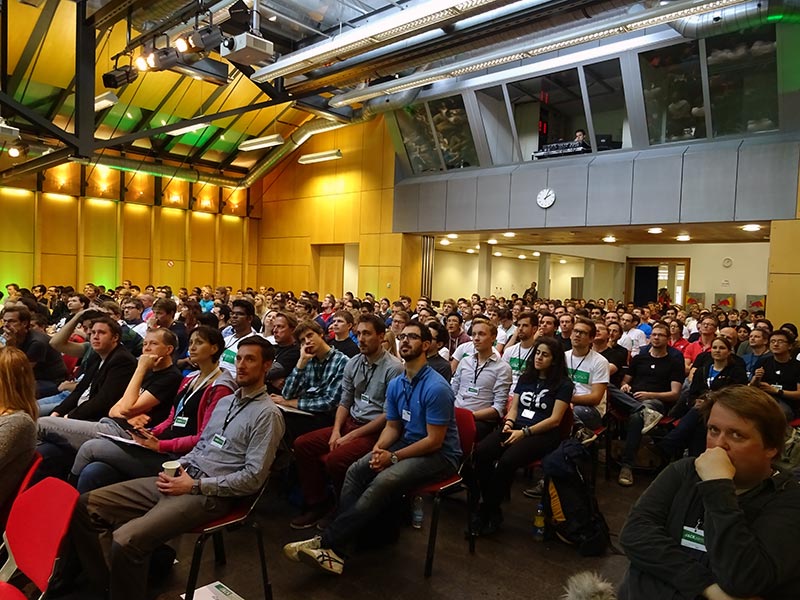
The final at Technopark Zurich. (Photo: Florian Meyer)
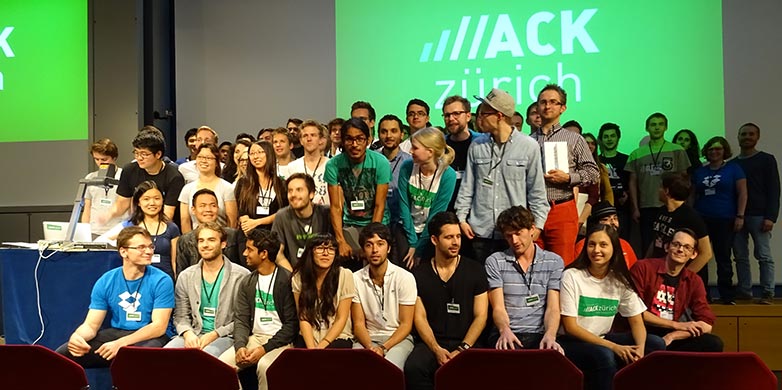
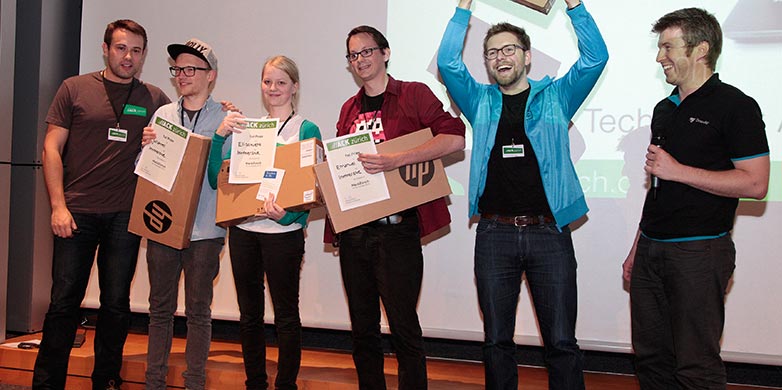
Comments
No comments yet